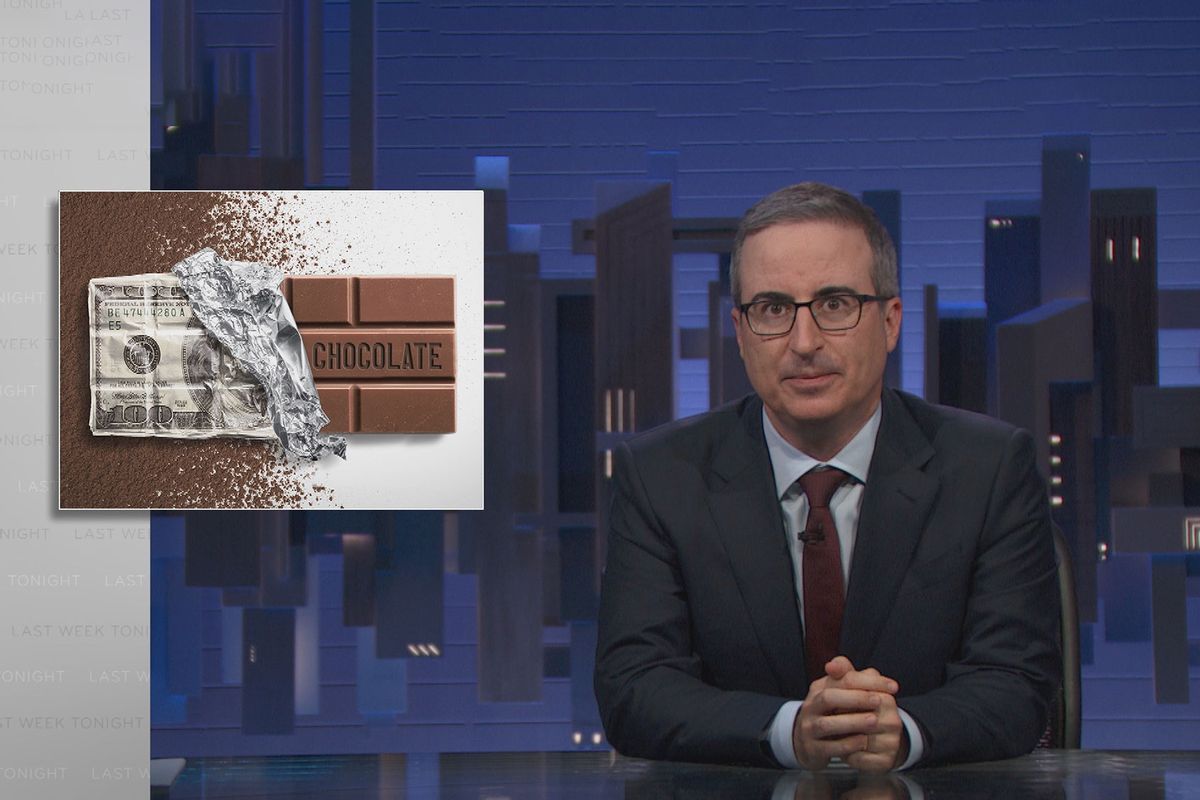In anticipation of Halloween week, John Oliver had only one thing on his mind: chocolate. But instead of highlighting the joys that are associated with consuming the sweet treat, Oliver chose to touch on the dark side of the chocolate industry during his main segment of “Last Week Tonight.”
“You might be sitting at home thinking ‘Hold on, I’ve seen this show before, this feels like this could be one of those fun stories but is it about to take a turn?” Oliver said. “I’ve got a jumbo bag of fun-sized Snickers that I’m going to be handing out to tiny Elsas and Luigis in around 48 hours, are you gonna make that weird for me?’ Well, yes, yes I am.”
He then delved into the abuses within the chocolate industry, explaining that farmers who grow cocoa in the first place don’t get to revel in all “the money and happiness surrounding chocolate.” More than 80% of the total global output of chocolate comes from west Africa. Ghana and the Ivory Coast contribute more than 60% to the global output. However, around 30 to 58% of its residents earn a gross income below the World Bank’s extreme poverty line, The Guardian noted.
“There’s something a bit weird about a product so synonymous with spreading joy and giving babies what’s basically a cocaine rush, abandoning those who grow its key ingredient to grinding poverty,” Oliver continued. “Even if you had a sense that cocoa production had issues, the truth is, from the land it’s grown on to the workers who harvest it, it is worse than you may realize.”
Oliver explained the operation of the cocoa industry which, like many lucrative businesses, involves major companies taking advantage of its helpless workers in order to make huge sums of profit. Within the industry, there are several cocoa trading companies — like Cargill, Barry Callebaut and OFI — that collectively buy and process about 60% of the world’s cocoa. The processed cocoa is then sold to chocolate companies, notably Mars, Hershey, Mondelēz, Ferrero and Nestlé, which manufacture over half the world’s chocolate.
Although the industry is incredibly profitable, most of its financial benefits are only reaped by those major companies. The farmers and laborers, on the other hand, are given “just 6% of a chocolate bar’s value,” Oliver said.
On top of the wealth division, Oliver added that the industry is riddled with illegal farming, environmental consequences and, unfortunately, child labor. Although Congress attempted to pass legislation in 2005 to set a deadline for eliminating child labor within the cocoa supply chain, major companies continued to push back on it, thus rendering the initiative useless.
Want more great food writing and recipes? Subscribe to Salon Food's newsletter, The Bite.
“All these companies will say that they’re concerned about child labor and that they’ve spent a lot of money trying to fix it. But that’s over 18 years, and while they were collecting $103 billion in sales annually,” Oliver noted. “C’mon, M&Ms must have spent more than that fine-tuning how f**kable the green M&M is.”
Oliver concluded that child labor is “an open secret” in the supply chain and that getting rid of the practice for good is “really complicated.” That being said, companies can start by paying farmers more in order to remedy the issue, Oliver added.
“I know these are companies, not charities, whose job it is to make money, not save the world. But that means that they will only care about this problem exactly as much as they are forced to,” he said. “So if we are serious about getting child labor out of our chocolate, we can’t keep relying on pinky promises and the honor system. We need tough legislation that requires companies to do the right thing.”
Watch the full clip below, via YouTube:



Shares